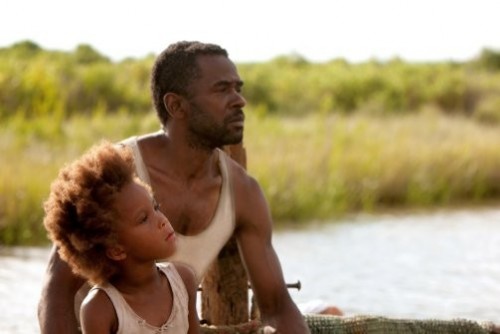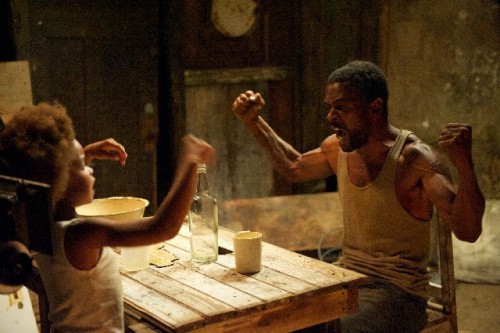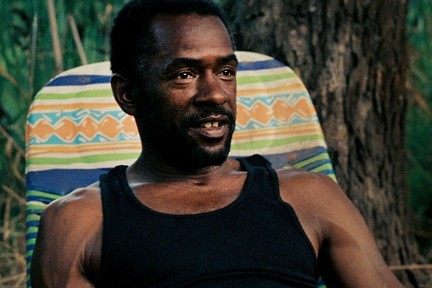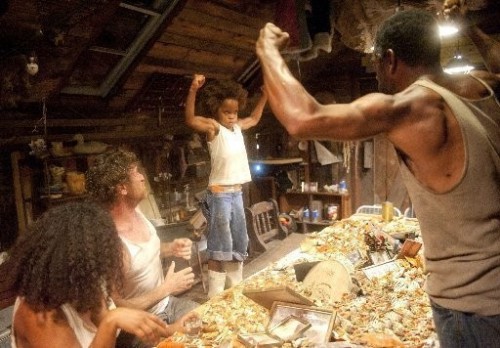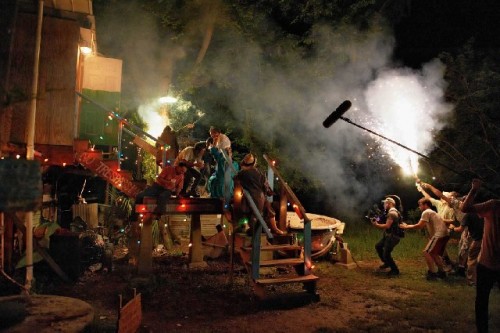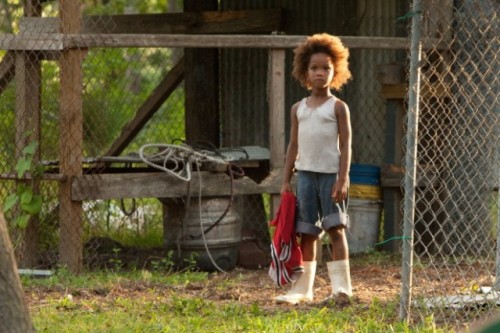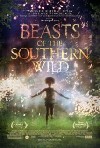Beasts of the Southern Wild
Richly Deserving Oscar Nominee
By: Charles Giuliano - Jan 18, 2013
Best Picture Oscar Nominees for 2013: Amour, Argo, Beasts of the Southern Wild, Django Unchained, Les Misérables, Life of Pi, Lincoln, Silver Linings Playbook, Zero Dark Thirty
Beasts of the Southern Wild is a 2012 American film directed by Benh Zeitlin and written by Zeitlin and Lucy Alibar from Alibar's one-act play Juicy and Delicious. After playing at film festivals, it was released on June 27, 2012, in New York and Los Angeles, and later expanded wider. The film is nominated for four Academy Awards in the categories Best Picture. Best Director, (Benh Zeitlin), Best Adapted Screenplay (Lucy Alibar, Benh Zeitlin) and Best Actress (Quvenzhané Wallis). At the age of 9, Wallis is the youngest ever nominee of the Academy Award for Best Actress.
The field for Best Picture has been expanded from five to nine films.
On Oscar night we will be shown clips of the nominated films. The camera will zoom in on a tense but smiling producer or director. There will be a moment of suspense as two presenters open the envelope. “And the winner is…” The camera will catch a reaction shot of the winner and then cut to brief images of the gracious losers.
While Beasts of the Southern Wild has been feted on the festival circuit it’s a thousand to one, long shot to edge out the perceived front runners- Argo, Les Misérables, Lincoln or even, theoretically, Life of Pi.
Although the nomination recognizes a low budget, first time feature by Benh Zeitlin, and a stunning performance by the juvenile Quvenzhané Wallis, it is at best a gratuitous gesture.
Currently, four of the nominated films are playing at our local cinema. We plan to see all of them. So we are late in catching up with the annual Oscar dialogue.
The other night we viewed Beasts of the Southern Wild on Netflix. The experience was astonishing. This is a truly unique, ravishing, totally enthralling film.
A few years ago we spent a day exploring the post Katrina devastation of the Ninth Ward in New Orleans. Comparisons to the fictional island in the Gulf of Mexico, The Bathtub, separated by a levee from a city that channels New Orleans, are inevitable.
But on a social and economic level the shanties and shacks of The Bathub are a few notches below the poverty of the Ninth Ward. Compared to which there are few if any utilities and amenities.
The positively adorable, nine-year-old Hushpuppy (Quvenzhané Wallis) is being raised after a fashion by a rough, but oddly tender and loving father, Wink (Dwight Henry). A heavy drinker he is in failing health and disappears intermittently. A motherless child she is amazingly resourceful and receives quasi support from an extended family/ community on the island. There are abundant grass roots (actually mud) wisdom and communal survival skills.
It may not be much, actually Third World by comparison to even the poorest of Americans, but there’s no place like home.
Authorities from the mainland arrive and warn of an approaching storm (Katrina?) and demand that the residents evacuate. Construction of yet another levee has disrupted the natural ecosystem and threatens to swamp the island.
A handful of Bathtubbers, including Hushpuppy and her dad, opt to ride out the storm. There is intensely vivid footage of the raging elements. Wink sleeps and drinks through it and demands that she lie down beside him.
The island is totally destroyed. The survivors band together and erect a barn like shack for collective living. Most of the animals are dead but they assemble a feast of seafood with mostly crabs and crawdads. The setting is primitive but the spirit and flavors are compelling.
Despite the grim squalor you empathize with these hardy souls.
There is an act of sabotage as a group manages to blow a hole in the levee. Quickly the sea receded and the island, while soaked with mud, emerges. There is hope to sustain their generations old lifestyle on the island.
Again officials arrive and forcibly remove the residents to mainland shelters.
The setting is generic and lacking in character. Ultimately, while more hygienic, it’s demeaning. We see Hushpuppy cleaned up. Her nappy shock of hair is neatly groomed and we are surprised to see her in a dress.
The ailing Wink is given intensive care. In their patois he is “wired to the wall.”
Rising from a death bed Wink leads a rebellion and returns to the Bathtub. There to die in familiar surroundings.
There are many metaphors laced through this wonderful film. It is the norm and dehumanizing to look down on the less fortunate. The Bathub, while grim and squalid, is a vibrant and loving community.
It also evokes debate about the nature of education. In this environment children like Hushpuppy don’t have the benefit of conventional book learning. But, as is the case with indigenous communities all over the world, there is traditional wisdom passed along. There are tender scenes in which Wink teaches her to catch and kill fish, or the proper way to crack open a crab during a communal feast.
Indeed, how many of us sophisticated city folks would last a week on The Bathtub? As a Boy Scout, much to my regret, I never made it past Tenderfoot.

